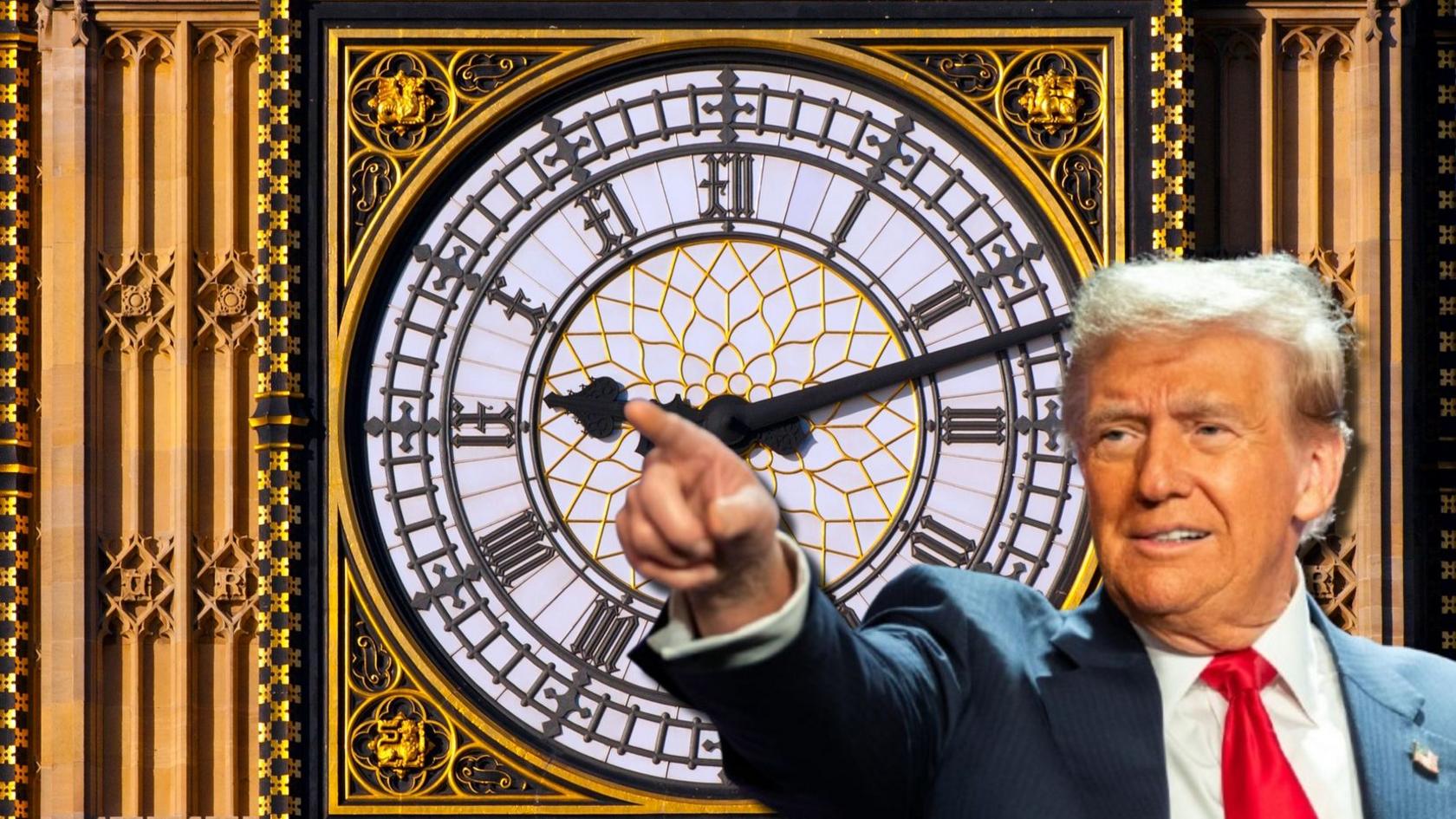Donald Trump wants to stop the clocks changing twice a year

- Published
The next president of the US, Donald Trump has said he wants to get rid of Daylight Saving Time (DST) in America, which is when the clocks go forward, or back, twice a year.
In a post on social media, Mr Trump said the practice is "inconvenient" and "very costly" to Americans and that his Republican Party would work to end it.
He's not the first person to suggest this and, over the years, people have called for the practice to be scrapped here in the UK too.
So what is Daylight Saving Time (DST) and why do countries change the clocks at all?
More like this
Why do we change the clocks forward and back?
- Published27 March
What is the autumn equinox?
- Published22 September 2023
What time is it on the Moon?
- Published3 April 2024
Why do we change the clocks?
Why do we change our clocks?
Daylight Saving Time (DST), also known as British Summer Time in the UK, is a period in summer when the clocks go forward by one hour, meaning we get up 'earlier' and see more sunlight.
In October, the clocks go back again for the winter months.
The UK and around 70 countries around the world change their clocks like this.
Some people say that changing the clocks twice a year upsets the natural rhythm of sleep, which can lead to health problems.
However, others say that if the practice was stopped, darker mornings in winter would be more unsafe, for example on the roads when children travel to school.
Some industries such as agriculture also rely on there being lots of sunlight available to work in.
Have any other countries got rid of different times for summer and winter?

Mexico ended daylight savings time in 2022
DST has been in place in nearly all US states since the 1960s but some do not change their clocks at all, such as Arizona and Hawaii.
Mexico ended the practice of changing the clocks twice a year in 2022 but it is still maintained in the regions near the US border where it they felt it was important to match the other side of the border.
Other countries that have a standard time all year round include Jordan and Iran.
Russia changed to permanent Daylight Saving Time in 2011, but it was changed to permanent 'winter time' or standard time in 2014.
In March 2019, the European Parliament voted to end the practice of changing the clocks twice a year, with member states needing to decide whether they would permanently remain on winter or summer time by the end of 2021.
However, the reform has temporarily been put on hold.
There are currently no plans to stop changing the clocks in the UK.
